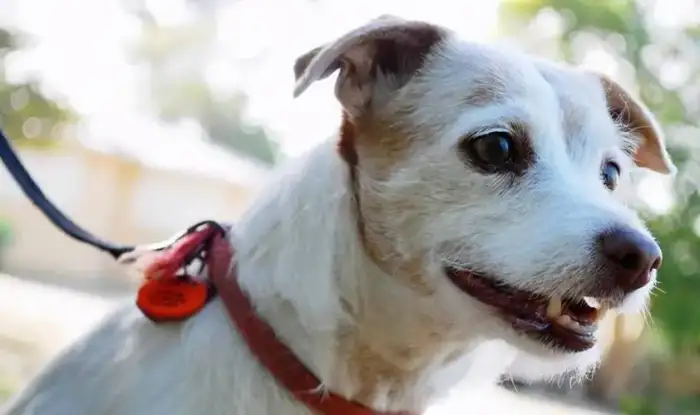It can be heartbreaking to see our beloved dogs showing signs of aging or illness. And as they approach the end of their lives, many pet owners notice a peculiar behavior: some dogs may try to avoid staying at home or seek solitude. This can be confusing and distressing, leaving owners wondering why their once-loyal companions want to be alone. In this article, we’ll dive into five key reasons why dogs may avoid home during their final days.

1. Instinctual Behavior: Why Dogs May Seek Isolation
Understanding Instinct in Dogs
Dogs are descendants of wolves, and although they are domesticated, many of their survival instincts remain intact. When animals in the wild sense their end is near, they often isolate themselves. Here’s why this might be happening with your dog:
- Self-Preservation: In the wild, sick or weakened animals can attract predators. For dogs, this instinct may trigger the desire to find a quiet, safe place away from home, where they feel secure.
- Avoiding Burden on the Pack: In nature, animals tend to avoid becoming a burden to their family or pack members. When dogs feel unwell, they may instinctively withdraw to avoid drawing attention.
How to Recognize Instinctual Behavior
If your dog seems restless, tries to hide, or shows a sudden preference for secluded spots around or outside the home, they may be following these deep-rooted instincts.
2. Physical Discomfort and Sensitivity
How Pain Affects Dogs’ Behavior
As dogs age or become ill, they may experience physical pain or discomfort that makes them more sensitive to their surroundings. Here’s how this can impact their end-of-life behavior:
- Sensitivity to Sounds and Smells: The noise and activity within a home may become overwhelming. Dogs in pain often seek a quieter environment where they can rest undisturbed.
- Sensitivity to Movement: If your dog is in discomfort, they may try to avoid the usual hustle and bustle of home life, especially if there are children or other pets around.
Creating a Comfortable Environment
To help your dog feel more at ease, consider creating a quiet and comfortable space for them. Reduce noise levels, and provide a cozy bed with easy access to water and soft blankets.
3. Emotional Connection and Sensitivity to Owner’s Emotions
Dogs Sense Human Emotions
Dogs have an incredible ability to pick up on our emotions. If you are feeling distressed about your pet’s declining health, they may be reacting to this emotional energy. Here’s why:
- Protective Instincts: Dogs are known for their loyalty and protective nature. They might sense their owner’s sadness or worry and try to avoid adding to it by distancing themselves.
- Desire for Peaceful Departure: In some cases, dogs may wish to create a peaceful environment for their departure, choosing solitude over being surrounded by emotional tension.
Managing Your Emotions Around Your Dog
While it’s natural to feel emotional, try to provide a calming presence for your dog. Spend time with them in a way that’s relaxed, offering quiet companionship without overwhelming them with worry or sadness.
4. Changes in Routine and Desire for New Surroundings
The Need for a Change in Scenery
During their final days, some dogs may feel the need for a change in routine or surroundings. This could manifest in behaviors such as wanting to stay outdoors, moving to different rooms, or showing interest in quiet spaces.
- Seeking Fresh Air: Fresh air and natural surroundings can offer comfort to some dogs. If your dog shows interest in being outside, consider setting up a cozy area in the garden where they can relax.
- Desire for Different Sights and Smells: The scents and sights outside may bring comfort and may even remind your dog of their adventurous younger days.
Allowing Safe Outdoor Time
If your dog wants to be outside more often, you can create a safe outdoor spot for them. Make sure it’s free from loud noises, provides some shade, and offers a peaceful environment where they can feel comfortable.
5. The Natural Process of Letting Go
Understanding a Dog’s Final Journey
For some dogs, there’s an instinctual need to leave home as they sense their time is near. This natural process may look unusual, but it is part of many animals’ instinctual behavior when approaching the end of their life.
- Returning to Nature: Dogs have been part of nature for thousands of years, and some may find peace in returning to a quiet, natural setting.
- Seeking Solitude for Peaceful Transition: Some dogs may seek solitude to transition peacefully. They might look for a space where they can quietly let go without interference, respecting the privacy that their instinct demands.
Respecting Their Wishes
If your dog shows signs of wanting to be alone, it’s essential to honor this wish. Respect their choices, and if they seek solitude, let them do so in a safe and secure environment.
Conclusion
Watching our beloved pets approach the end of their life is never easy, but understanding why they might seek solitude or avoid home can offer some comfort. Dogs have natural instincts that guide their behavior, especially during sensitive times. By recognizing these instincts, physical discomfort, and emotional cues, we can help them find peace and offer

Comments (0)